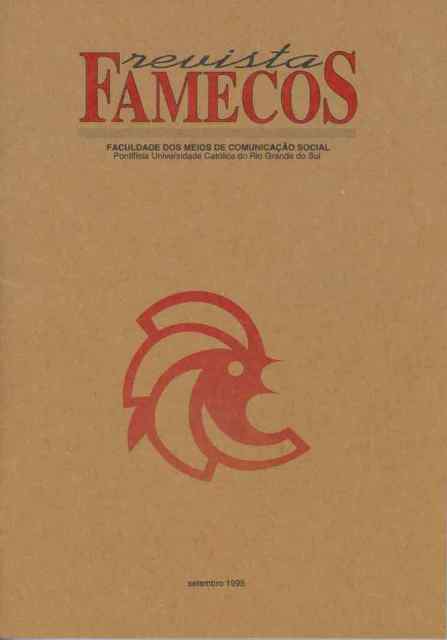940/5000 Raimundo: The Obsolete Teacher
DOI:
https://doi.org/10.15448/1980-3729.1995.3.2929Keywords:
Communication, humor, televisionAbstract
The 20th century has been the scene of substantive transformations in Communication. The flow of information has shortened geographical distances. It mirrors the omniscience of man in every corner of the universe and his dominion over the presuppositions of nature. A few decades ago, perhaps, the most fanciful fictional work had little imagination to anticipate the circumstances of this turn of the century. Contemporary society is driven by information. In no other historical moment, as now, has produced so much text, so many images and so many symbols. In this brief essay, the goal will be to do a Discourse Analysis, with a technique of the Content Analysis Method, according to Bardin (1977). It seeks to understand the ideologization of the teacher, through the character Raimundo, and his relationship with Dona Bela (Zezé Macedo) in a scene from the program A Escolinha do Professor Raimundo.
Downloads
References
ADORNO, Theodor, and HORKHEIMER, Max. Dialética do Esclarecimento - Fragmentos Filosóficos. 2ª edição. Rio de Janeiro: Jorge Zahar Editora, 1987.
ALTHUSSER, Louis. Aparelhos Ideológicos de Estado. 2ª edição. Rio de Janeiro: Graal, 1983.
ANYSIO, Chico. "Chico Anysio vai fazer um programa aos sábados." Folha de S. Paulo. São Paulo: 22 de julho de 1990.
__________. Revista Carreta. São Paulo: 21 de julho de 1981.
BARDIN, Laurence. Análise de Conteúdo. Lisboa: Edições 70, 1977.
BARTHES, Roland. Ensaios Críticos. Lisboa: Edições 70, 1971.
MATTELART, Armand. Multinacionais e Sistemas de Comunicação: Os Aparelhos Ideológicos do Imperialismo. São paulo: Ciências Humanas, 1976.
PRADO, Lourenço de Almeida. "O que os professores pensam da TV." Jornal Fio da História. Brasília: 10 de fevereiro de 1992.
PIOVEZAN, Walquíria Aparecida, e SOLATO, Vera Lúcia. Programa Infantil de Rádio: Uma proposta de realização de programa para crianças entre 4 e 6 anos. Trabalho de Conclusão de Curso em Comunicação Social, Habilitação em Jornalismo, Universidade de Piracicaba, 1992.
Downloads
Published
How to Cite
Issue
Section
License
Copyright
The submission of originals to Revista Famecos implies the transfer by the authors of the right for publication. Authors retain copyright and grant the journal right of first publication. If the authors wish to include the same data into another publication, they must cite Revista Famecos as the site of original publication.
Creative Commons License
Except where otherwise specified, material published in this journal is licensed under a Creative Commons Attribution 4.0 International license, which allows unrestricted use, distribution and reproduction in any medium, provided the original publication is correctly cited.






